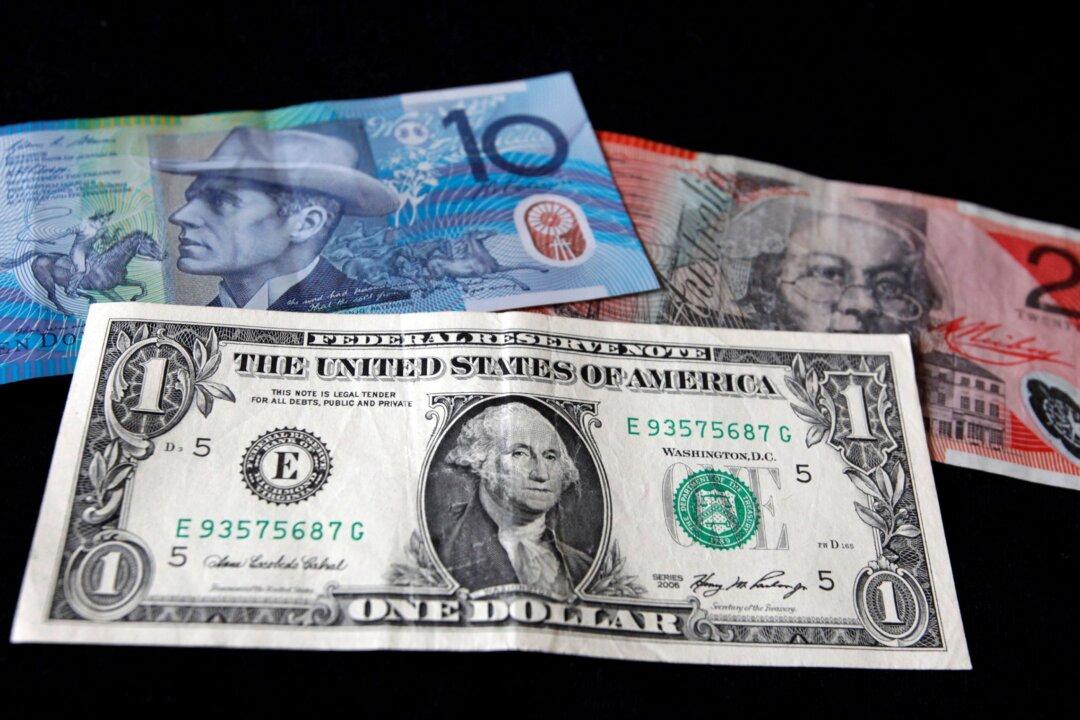LONDON—The risk-sensitive Australian dollar rallied and the safe-haven yen dipped to a nearly three-month low on Monday, as fears of widespread market contagion from indebted China Evergrande Group receded.
Rising commodity prices also helped the Aussie and Norway’s crown, while the yen was pressured as higher U.S. yields attracted Japanese investor money.





